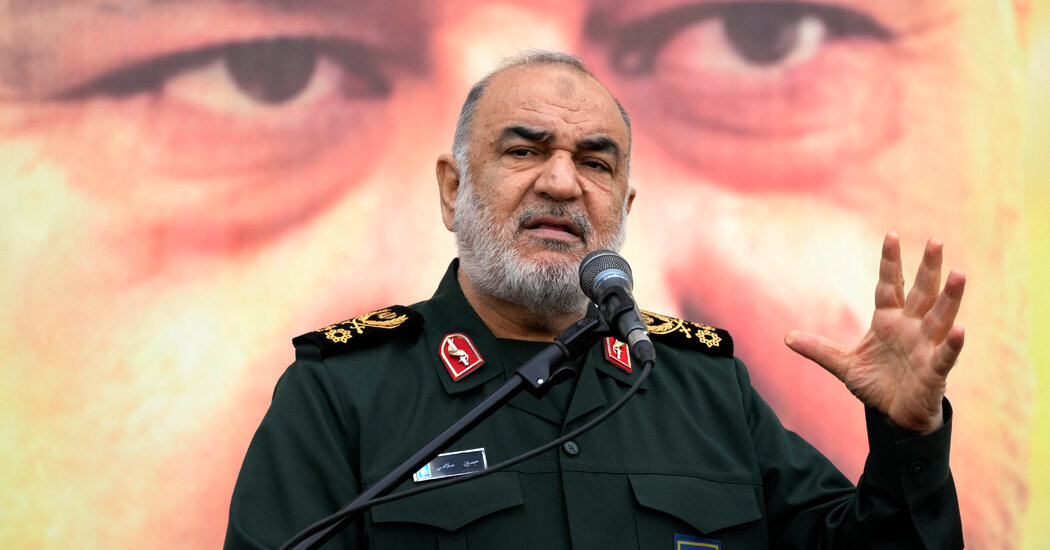Key donors to the United Nations agency that aids civilians in Gaza have signaled they will continue to support the organization under the right conditions despite Israeli accusations that some of its employees were involved with terrorist attacks in Israel on Oct. 7.
That support, which comes as the Israeli government has called for the international community to defund the United Nations Relief and Works Agency, known as UNRWA, suggests that an appetite could exist among donors to resolve the agency’s funding crisis.
At least 12 countries, including the United States and Germany, the two biggest donors, have said they are temporarily suspending funding after the Israeli government made its initial allegations. The United Nations said on Friday that it had fired nine employees and started an investigation.
A spokesman for the U.S. State Department said in comments posted on Tuesday that it was crucial for the United Nations to conduct the investigation, ensure accountability and take steps to prevent a repetition, but he also emphasized the importance of the organization’s work.
“There is no other humanitarian player in Gaza who can provide food, water and medicine at the scale that UNRWA does,” the spokesman, Matthew Miller, told reporters. “We want to see that work continued.” The State Department on Tuesday downplayed the immediate significance of the suspension.
Mr. Miller did not say when the U.S. government might make a decision about financing the agency, whose leaders have said will soon run out of funds.
That timing could prove to be a problem for UNRWA, given the slow pace of U.N. investigations.
The United Nations has informed donor countries that it will take at least four weeks to conduct its investigation, according to two diplomats familiar with the matter, who spoke on condition of anonymity because they were not authorized to talk to reporters. The U.N. secretary general, António Guterres, conveyed that message at a meeting with donor countries in New York this week, one of the diplomats said.
That time frame would be quicker than usual. Probes conducted by the U.N.’s top auditing body, the Office of Internal Oversight Services, typically take many months and involve interviews with staff members, site visits and a forensic review of U.N.-issued computers, telephones, and other equipment, according to Vladimir Dzuro, a former senior investigator in the office.
U.N. agencies, including Unicef, the World Food Program and the World Health Organization warned this week in a joint statement that any pause in funding for UNRWA would have “catastrophic consequences for the people of Gaza.” For weeks, U.N. leaders have warned that ordinary people trapped in the war zone are facing hunger and rampant disease.
“Withdrawing funds from UNRWA is perilous and would result in the collapse of the humanitarian system in Gaza,” it said.
The Israeli government has for years said it wanted to disband UNRWA, which it regards as a front for Hamas. Still, some military leaders say they fear that, in its absence, the responsibility for distributing aid in Gaza would likely fall to Israel’s government.
Donor countries made individual decisions to suspend aid to UNRWA, and it is not clear that they would act in concert in response to the U.N.’s investigation.
A spokesman for Germany’s foreign ministry, Sebastian Fischer, said this week that the government would wait to see what the investigation yields before making a decision. Still, Mr. Fischer said the investigation is important because UNRWA’s work is so vital. “We are not abandoning the Palestinian civilian population,” he told journalists.
The European Union, which pledged $114 million to UNRWA in 2022, has not suspended funding, and its top diplomat, Josep Borrell Fontelles, said on Wednesday that it was critical to preserve the agency’s “irreplaceable role.”
For its part, Norway, a donor that has not suspended aid, will try to persuade other donors to think about the wider implications of a funding cut to UNRWA, the country’s foreign minister, Espen Barth Eide, said.
Mr. Eide said it was worrying that for some donor countries the allegations of misdeeds by a dozen employees of the agency had become a reason to suspend funding. This approach “amounts in a sense to a collective punishment of millions of Palestinians,” he said.
His argument echoed the views expressed by some officials in aid agencies, who have noted that, in the past, donors have maintained funding to U.N. missions and agencies even when investigations had proven that staff members were guilty of serious crimes.
Aaron Boxerman in Jerusalem, Christopher F. Schuetze in Berlin and Henrik Pryser Libell in Oslo contributed reporting.

